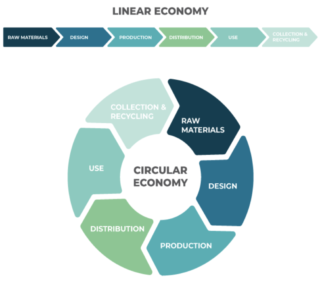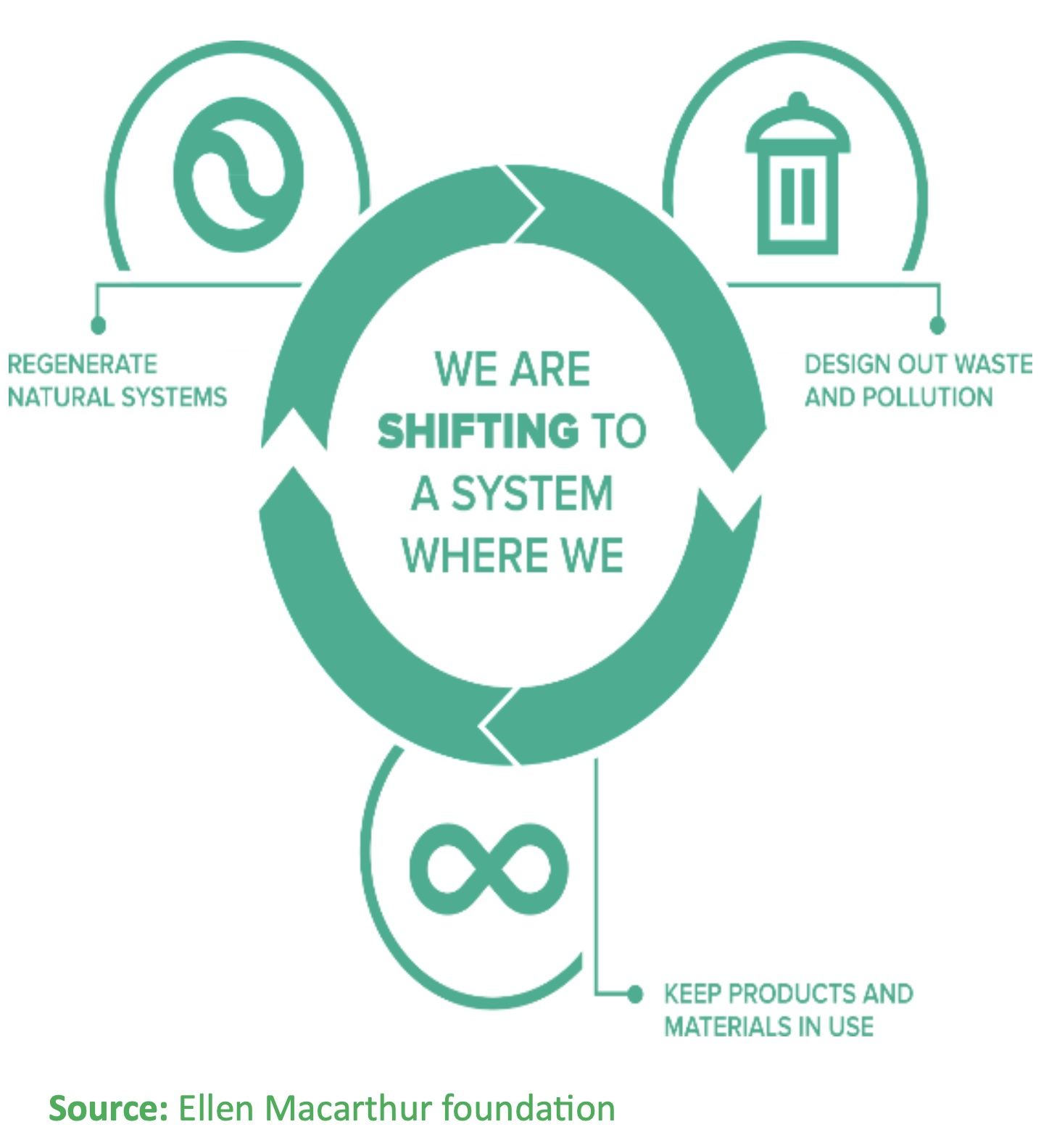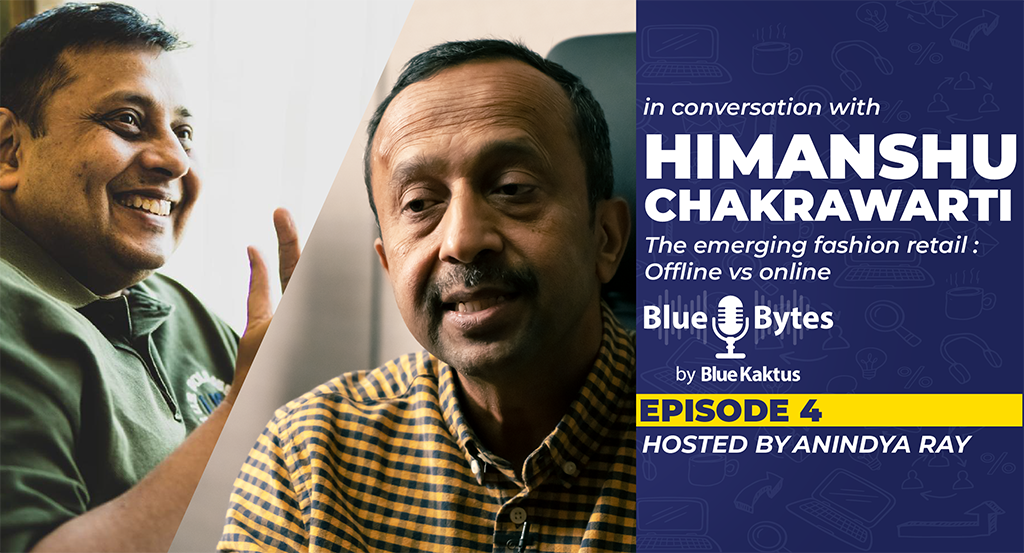Are we trying to eat out of each other’s pie or exploring the opportunities lying in the crumbles
SUSTAINABLE DEVELOPMENT IS A STRATEGY
First, let me reiterate that Sustainability as a concept has a lot more than meets the eye or rather perceived by the organizations. It is not mere EHS management or risk management but a long term strategy that has to be built for the entire value chain right from selecting and procuring a resource from the right vendor to designing, developing and disposing a product, ensuring economic growth without any negative impact on the environment and the society.
THE DILEMMA
Unfortunately, the industrial development of the past, till the recent decade, thrived on the pretext of abundant resources and careless linear approach of take-make-dispose. We cleared and mined forests, took down mountains and even dug oceans for fuel and minerals all without understanding the potential ways of reusing it or the ripple effects on biodiversity, in turn affecting our future generations.
Nature has provided us with everything till date but it is clear it may not be able to do so for eternity. The resources are depleting while the population is growing at an alarming rate and the climate change is happening at a pace faster than we can anticipate.
As a result, lately I have been asking myself:
“Are we really expanding the pie or are we just playing a zero sum game with the nature?”

CIRCULAR ECONOMY PRINCIPLE – WHY HAVE WE IGNORED IT?
Circular economy principles are clearly evident all around us. Nature has demonstrated the principle beautifully in the form of regenerative natural systems. Plants take nutrients and water from soil and produce fruits, transpire water and in the end give the nutrient back to the soil when the leaves are composted.
We have been referring to so many natural models, systems and elements (Biomimicry) for the purpose of solving complex human problems but have we forgot to understand the very basic lesson nature has taught us about the circular economy? Have the businesses purposefully ignored the concept?
CIRCULAR ECONOMY PRINCIPLE – WHY HAVE WE IGNORED IT?
Circular economy principles are clearly evident all around us. Nature has demonstrated the principle beautifully in the form of regenerative natural systems. Plants take nutrients and water from soil and produce fruits, transpire water and in the end give the nutrient back to the soil when the leaves are composted.
We have been referring to so many natural models, systems and elements (Biomimicry) for the purpose of solving complex human problems but have we forgot to understand the very basic lesson nature has taught us about the circular economy? Have the businesses purposefully ignored the concept?
In a Circular economy, the system is designed in such a way that the resources are reutilized for an overall development. A circular economy favours activities that preserve value in the form of energy, labour, and materials. This means designing for durability, reuse, remanufacturing, and recycling to keep products, components, and materials circulating in the economy.

Transitioning to a circular economy requires a systemic shift focusing on long-term resilience, economic growth and the environmental and societal benefits rather than focusing only on reducing the negative impacts of the linear economy.
However, we have to be careful in our approach and have to understand that it is important that the biological materials are reused and then recycled to the extent possible before being given back to the nature while the technical materials, like metals and plastics, cannot re-enter the environment safely and hence must continuously cycle through the system to recapture their value again and again.
WHAT’S IN THE WASTE?
If you go by the dictionary, Waste is any substance which is unwanted or unusable. However, I believe this definition has been an anomaly since the beginning and instead of waste we should call it an unutilized resource, one that should be utilized within the same industry or another based on the maximum economic value attained and should never be discarded. What if the waste was never created in the first place?
"I hate waste. I have to pay for it with the product and then I have to pay to get rid of it.” Paraphrased quote from Lee Scott, the chairman of WalMart
It is quite clear that waste is an expense that can be easily avoided. In fact, there have been a number of successful examples of circular economy in the past where waste of an industry transitioned to a resource and the dynamics of the waste management for one industry and the resource management of another completely changed.

Other examples include heat recovery system in cement kilns, use of recycled polyester in textiles, use of vegetable waste to extract natural dyes and now the use of carbon capture technology to create surfactants.
These have already proved that if there is will, making shift to sustainable practices and products is possible. Moreover, it makes sense for both biodiversity and business in a longer run.
THE MANIFEST
It is quite clear that the human beings have foolishly felt superior, obviously in ignorance. A collaborative, definitive and quick action is the need of the hour to ensure a sustainable tomorrow for the planet and our species.
Both, the Governments as well as the private sector, have to play the necessary role of framing and implementing the relevant policies to enable a quick and effective shift from the conventional linear approach to the circular one where resources are either reused or returned to nature in a safe manner, enabling a net positive impact on the biodiversity.
Circular economy will also create new business opportunities, lead to reduced costs due to lower virgin material requirements and improve the security of the supply of the raw materials.

Moreover, lower waste and pollution from the system will also saves intangible costs associated with the healthcare that may be eating a small percentage of a country’s GDP.
I strongly vouch that governments should put fines or provide incentives for industries to ensure all the resources within the value chain are utilized. The industries should be made liable to identify the practical methods to reduce waste to effectively zero and find use for the waste that cannot be avoided, especially across industries.
Earth is the only known habitable planet for our species and we should collectively ensure that it is enough for us as well as future generations to sustain.
RELATED TOPICS:#Apparel,Tushar Jindal
Leave a comment
Our email address will not be published. Required fields are marked *







2 Comments
NewsAug 08, 2022 at 13:05 pm
I'm gone too tell my little brother, that he shoould also pay a vsit tis web site on regular bwsis too obtaiin updated frm hotest news.
VENKATARAJ LANov 09, 2020 at 14:50 pm
Well described Tushar. Long way to go to achieve CIRCULAR economy. however the first thing need to change is the MINDSET change.